My content is reader-supported by awesome people like you. Which means I could earn a commission. Learn more here!
Thousands of people have a personal website, but do you need one?
If you have been pondering this question, you are in luck.
This guide will describe what a personal website is and who can benefit from having one.
We will explain the many reasons why you may need one and will even tell you how to set one up.
Furthermore, you will find out what kind of content you should be uploading to the site.
Lastly, you will get a few tips on setting up a successful personal website.
If you are ready to get started, keep on reading.
What Is a Personal Website?
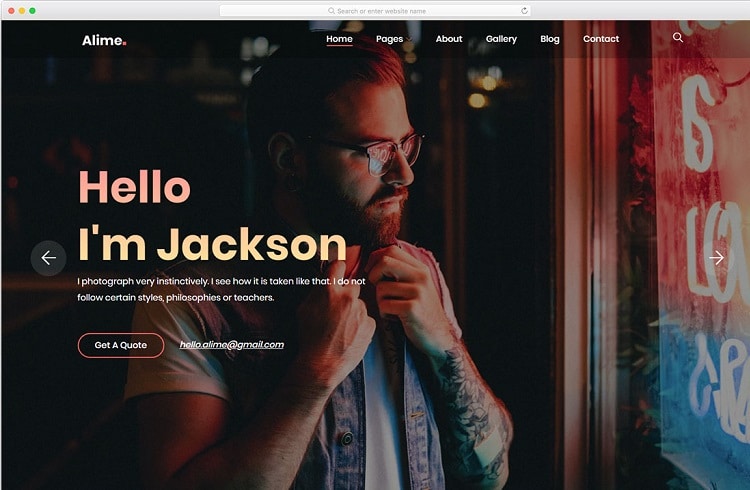
A personal website is a website that centers around an individual instead of a company, organization, or brand.
An individual can run a personal website for a few reasons that generally fall under entertainment, informative, or business purposes.
Some people run a website to share their passions and hobbies, while others use it as a medium for career marketing purposes.
Personal websites normally include a home page and several other pages that include extra content.
These pages can include biographies, skills, projects, blogs, and many other things pertaining to the individual.
A lot of personal websites act as a resume of some sort.
For instance, writers will have a home page with a basic bio and have some writing examples on the other pages.
Many artists also use personal websites as portfolios for their work.
Some musicians will even release new songs or EP’s on their website during the beginning of their career.
Some people can also use personal websites to communicate with potential clients, buyers, or fellow enthusiasts.
Artists can post guestbooks to the website to see how many people are coming to their showcase.
A lot of people favor personal websites because of the freedom they offer.
There is no limit to the amount or type of information you post on a personal website compared to many other social networks.
Generally, personal websites can be anything you want them to be.
The site will always revolve around a single person and have a particular purpose.
Who Is a Personal Website For?
Anybody can own a personal website.
However, personal websites will be more beneficial for certain people.
Let’s see the different kinds of people that would benefit from a personal website.
For Anybody That Needs a Portfolio
Perhaps you are an artist, writer, or musician.
If you are just starting in the industry, you may need a medium to showcase your work.
If you want an easy and simple way to start promoting your talent, then a personal website will be a great option for you.
For Those Looking for a Job
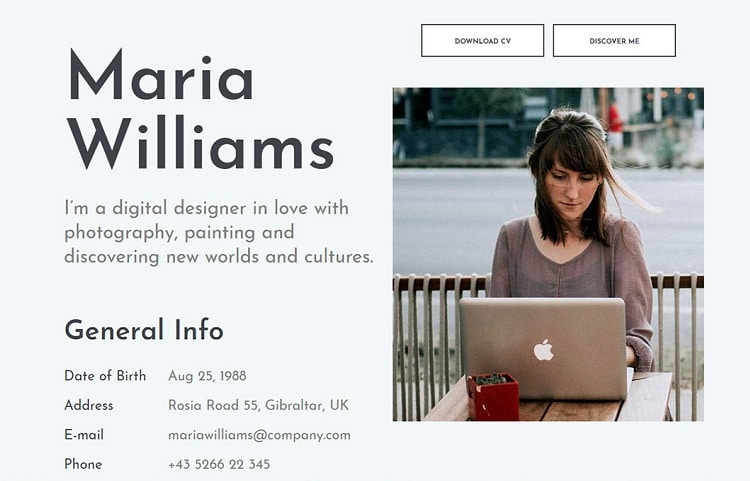
Many employers google prospective employees before they interview or hire someone.
Having a personal website can give you an advantage over others by showing how serious you are.
Having a personal website will also help recruiters find you.
Perhaps a company is not only looking at resumes for a job but is also searching through some websites for potential employees.
You could be opening yourself up to even more job offers by starting up a website.
If you want the chance to look more professional and serious about whatever industry you are trying to get into, then building a personal website will be a good idea.
For Those Who Want a Space To Be Creative
Maybe you are not looking for a job, but you want a space to let your creativity run wild.
Personal websites can also be a medium for your passions and hobbies.
They are a great place to start a blog and post videos or pictures of your hobby, such as baking or gardening.
As you continue to post and share parts of your life with others, you will begin to form a community of like-minded enthusiasts.
Personal websites can give you the chance to form new friendships and share some helpful insights with others.
For Anybody at the Head of a Company or Brand
Finally, if you are running a brand or a company, you should also have a personal website.
It is easy for brands to look impersonal and cold.
However, running a personal website will give a face to the business.
The reason why personal websites have that title is that they are, indeed, more “personal.”
Having a website centered around you will gain the trust of current and potential customers.
You will have the chance to share your thoughts, goals, and passions with consumers, helping build a better image for your brand.
What To Include in a Personal Website
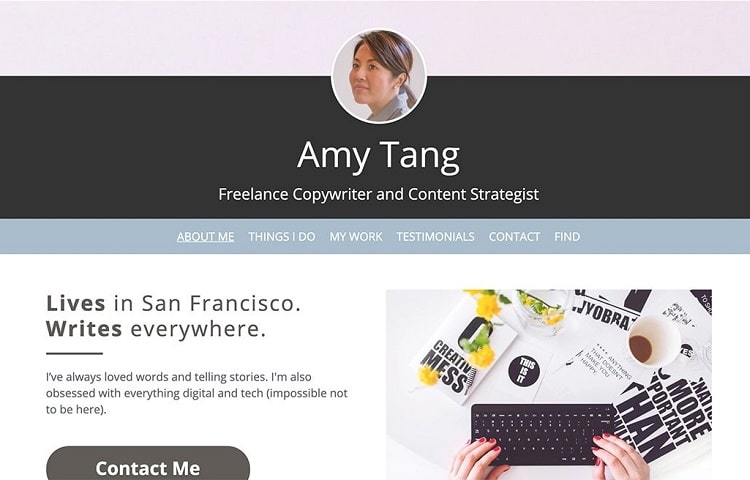
Now that you know what a personal website is and who uses them, you may be wanting to start one yourself.
Before you start building your own website, it will be good to know what content you should share.
Let’s take a look at some of the best content to upload on a personal website.
A Short Biography
The most important thing to include on your website is a short biography.
This section will help people get to know you as a human and not as a brand.
There are a few things you should consider adding to your biography.
Start with some general information and quickly cover who you are as a professional.
What line of work are you in?
How did you get there?
You can then take some time to get a bit personal.
Give readers something unique to digest, such as where you grew up or what you love to do in your spare time.
This section is important since it gives readers a way to relate to you, building trust and rapport.
You can also take a few paragraphs to dive into more of your professional work.
You can cover your education, what companies you have worked for, and what other work experience you have.
Even if you are running a personal creative blog, don’t underestimate the value of the biography.
Sharing your work experience and professional work will add to your credibility and reassure people they can follow your advice.
An Elevator Pitch
Ever wonder what to put on your front page?
An effective way to grab people’s attention is to put your elevator pitch on the first webpage they see.
An elevator pitch will be up to three paragraphs highlighting the most important things about you.
Basically, what you want to do here is write everything you would want someone to know if that was the only thing they read on your website.
You can include a few things in your elevator pitch.
Describe what you do, some of the main companies you have worked for, how many years of experience or education you have, etc.
The main thing you want to do is build your credibility, showcase your talent and build trust.
Don’t be afraid to add some personal information as well.
A Blog

The blog section is where you can have a bit of creative freedom.
Even if your site mainly focuses on your professional work and experience, have some fun by writing interesting blogs.
The blog is where other people can interact with you. Invite people to comment on the blog and ask for their opinions.
This will allow you to build lasting relationships with possible partners, employers, or even friends.
Furthermore, you can use the blog to showcase your knowledge in the field.
Share a few tips you have learned along the way and show employers why they would be lucky to have you.
It is also essential to post semi-regularly on the blog.
Post a few times a month to show people that you are interested and passionate about your industry.
Lastly, when you are using the personal website to look for job opportunities, try to post about the industry’s latest news.
Staying on top of the latest trends, techniques, and knowledge in your field will be very impressive to a hiring manager.
A Portfolio of Your Work
One of the best ways to utilize a personal website is to use it as a portfolio for your work.
Many photographers and artists will post some of their best pieces in the portfolio section.
However, it is worth noting that you don’t have to be a photographer or graphic designer to share your work.
Just because you don’t have something visual to share doesn’t mean you have nothing to share.
For instance, if you are a writer, share some of your best short stories or top-selling novels.
If you are an entrepreneur, share and describe what your best campaigns were.
If you can, share some numbers as well as personal stories.
The more detail you give, the more talent prospective employers will see.
Testimonials
A great feature to include in your personal website is client and coworker testimonials.
If you provide a product or service of some sort, consider posting some client testimonials and reviews.
Testimonials are a great way to build your credibility and display the value of your product.
You can also include some testimonials from past coworkers and bosses.
A great testimonial will highlight your soft skills and work ethic.
Try and get a direct quote from them and put it in a larger font on your testimonial page to make it stand out.
How To Create a Personal Website

Now that we know what to include in a personal website let’s take a look at how to create one!
Even though the task may seem daunting, you can successfully build a personal website in a few easy steps.
Let’s get into it.
Choose a Website Building Platform
The first thing you need to do is choose a website-building platform to create your personal website.
There are many free platforms you can use that will have a lot of great features.
Here are a few of the most popular platforms.
- WordPress
- Squarespace
- Weebly
- Wix
- Mozello
Take a look at all of the features and choose one that is best for you.
If you want an easy-to-use website builder, then go with Weebly, Wix, or Site123.
WordPress and Mozello will work well if you have a bit of coding experience.
Choose a Domain Name
When starting a personal website, you will need to get a domain name.
The domain name is the URL people type into the address bar to get to your website.
When it comes to personal websites, the best domain name will be your full name or the name you want people to know you as.
It will also be worth paying for a domain name (www.johndoe.com) since it will look more professional than having a subdomain (www.johndoe.weebly.com).
Start Uploading Content
Now that you have the basics set up, it is time to start uploading content.
Start with your home page and the “about me” page (your bio) and upload a picture of yourself.
After you have those two set up, you can start with the extra pages, including the portfolio, testimonials, and blog.
Extra Tips
Even though setting up a personal website will be pretty straightforward, there are a few tips that will make the process a bit smoother and more successful.
- Have a clear message/goal before designing your website. If you are still unsure of what your website is going to be, then your final product will reflect that. Make sure you know exactly how you want to utilize your site before you start the process.
- Choose a template that reflects your personality. There are hundreds of templates out there to choose from when designing your site. Make sure to choose one that fits who you are so the website visitors can quickly get a sense of your personality.
- Optimize your site with SEO tools. You will need to optimize your site with SEO to get noticed. Luckily, many website builders have easy-to-use SEO tools built into the platform.
- Choose a website builder that will make your site mobile-friendly. Many people nowadays visit websites on their phones. To accommodate these visitors, make sure your site is mobile-friendly, so it is easy to read and navigate.
Conclusion
Many people use personal websites for different reasons, whether it’s for business or pleasure.
You may want a personal website if you want to set up a portfolio if you are looking for a job, if you want a creative outlet, or if you want to reveal the face behind a company.
If you want to build a personal website, start by choosing a website builder.
Then you can buy a domain and start adding content to your site, such as a bio page, portfolio page, and any other pages you want to add.
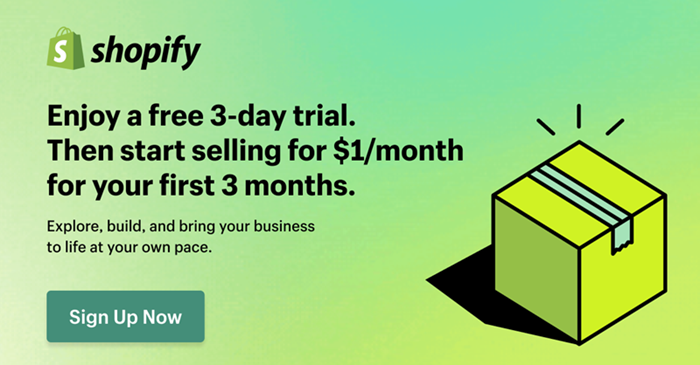


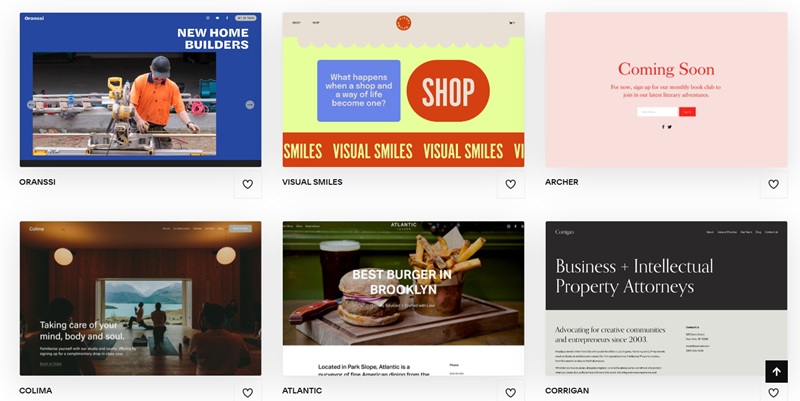
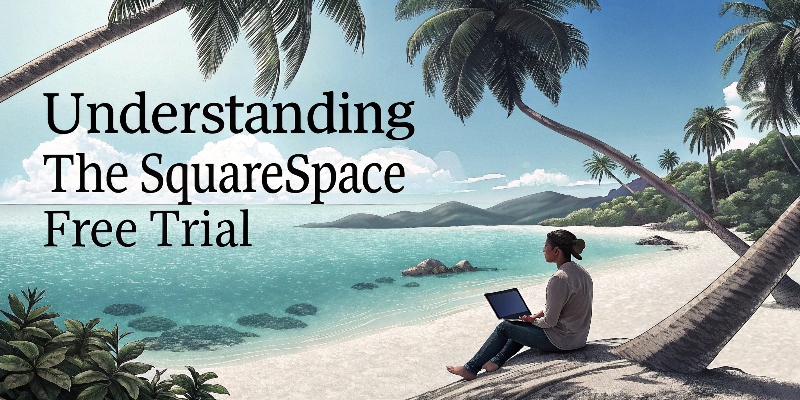
Leave a Reply